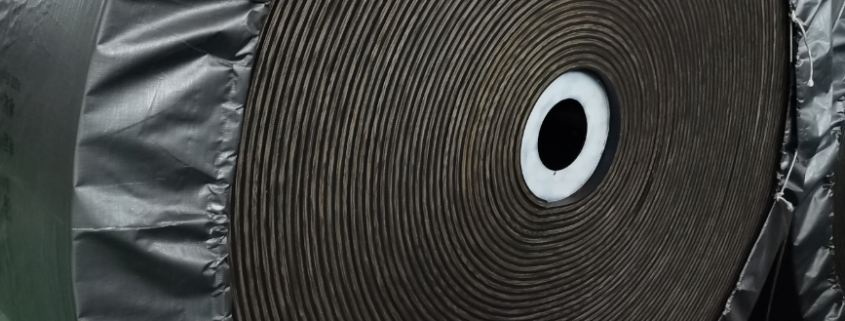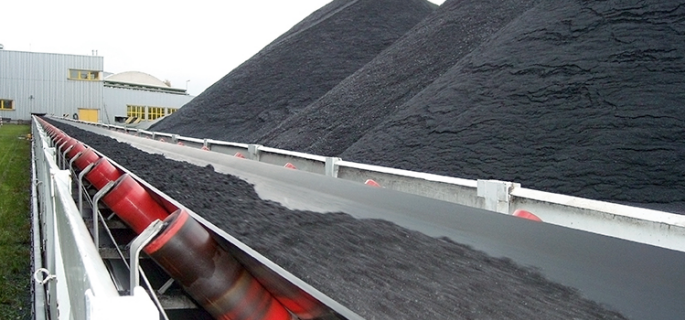A tail pulley conveyor is an essential component in material handling systems, primarily located at the end of the conveyor belt loop. Its main function is to redirect the conveyor belt back towards the head pulley, ensuring continuous operation. The tail pulley conveyor helps maintain proper belt tension and alignment, which are crucial for preventing slippage and ensuring efficient material transport. By supporting the return side of the belt, the tail pulley conveyor enhances the overall performance and longevity of the conveyor system, making it indispensable in various industrial applications. Proper maintenance of the tail pulley is vital for the optimal functioning of the entire conveyor setup.
Read moreUnderstanding the heavy duty rubber belt price involves considering several factors that influence the cost. Material quality is a primary factor, with high-grade rubber and reinforcements driving up the price. Industry applications also play a crucial role, as belts designed for demanding environments like mining or heavy manufacturing often cost more due to their enhanced durability and specialized features. Additionally, the length, width, and thickness of the belt impact the overall price, with larger and thicker belts generally being more expensive. This section provides an introduction to these factors, helping you understand what drives the heavy duty rubber belt price.
Read moreRubber belting is a critical component in numerous industrial applications, from manufacturing to mining. The durability and flexibility of rubber conveyor belting make it essential for efficient material transport. For industries where fire safety is a priority, FR Rubber Belt provides an added layer of protection, ensuring safe operation even in high-risk environments.Finding rubber belting near me is convenient, providing quick access to high-quality products like FR Rubber Belt that meet specific industrial needs. Local suppliers offer a range of options, ensuring that businesses can easily source the right type of rubber belting for their operations, including fire-resistant variants. This not only enhances efficiency but also reduces downtime, as companies can get the precise belting they need without long delays.
Read moreHeat resistant conveyor belts play a crucial role in various industries, including mining, manufacturing, and food processing. These belts are designed to withstand high temperatures, ensuring efficient and safe material handling under extreme conditions. This blog will cover the essential aspects of heat resistant conveyor belts, including their specifications, materials, and leading manufacturers. We will also discuss the different temperature ratings and how to choose the right belt for your specific needs. By the end, you will have a comprehensive understanding of what makes a heat resistant conveyor belt manufacturer stand out in the industry.
Read moreConveyor belts are crucial components in industries ranging from mining to manufacturing, facilitating efficient material transport. At the heart of this vital system are conveyor belt dealers, the unsung heroes ensuring a seamless supply chain of high-quality belts. These distributors play a pivotal role in meeting diverse industrial needs, providing belts tailored to specific applications with precision and reliability. Their expertise ensures that industries can rely on sturdy, durable belts that enhance productivity and safety. Understanding the pivotal role of conveyor belt distributors is key to appreciating the efficiency and innovation driving modern industrial operations.
Read moreConveyor belt scales are crucial tools in various industries, ensuring precise material handling and efficient operations. The conveyor belt scale price is influenced by several factors, including the scale’s capacity, accuracy, and the technology used. Additionally, installation costs and the specific industry requirements can impact the overall price. Understanding these elements helps businesses make informed decisions when investing in conveyor belt scales, optimizing both performance and cost-efficiency. By considering these factors, companies can select the best conveyor belt scale that meets their operational needs and budget constraints.
Read moreBulk material belt conveyors are essential systems used across various industries for the efficient transportation and handling of bulk materials. These conveyors are designed to move large quantities of materials, such as minerals, grains, and other bulk goods, with minimal effort and high efficiency. The importance of bulk material belt conveyors lies in their ability to streamline operations, reduce labor costs, and improve productivity. In this blog, we will explore the definition and significance of bulk material belt conveyors, delve into their key features and advancements, discuss how to select the right conveyor for your needs, and provide insights into top manufacturers and maintenance tips.
Read moreConveyor belt scrapers play a vital role in maintaining the efficiency and longevity of conveyor systems in industrial operations. These scrapers are essential for removing material buildup on the belts, preventing damage and ensuring smooth operation. The choice of conveyor belt scraper material is crucial as it directly affects the performance and durability of the scraper. Various materials, such as polyurethane, carbide, and specialty composites, are used for manufacturing these scrapers. Each material offers unique benefits and is suited to different industrial environments. Understanding the properties and applications of different conveyor belt scraper materials helps in selecting the most suitable one for specific operational needs, ultimately enhancing the system’s overall functionality and lifespan.
Read moreConveyor belts are essential components in a variety of industries, including manufacturing, mining, and recycling. Their widespread use underscores their importance in efficiently transporting materials from one point to another. Understanding what material is a conveyor belt made of is crucial for selecting the right belt for specific applications. Conveyor belts are made from several key materials, each chosen for its unique properties and suitability for different environments. Common materials include rubber, polyurethane, fabric, and metal. Each material offers distinct advantages, such as durability, resistance to heat and chemicals, and flexibility. Knowing what material is a conveyor belt made of helps in optimizing performance and longevity in industrial operations.
Read moreConveyor belts are essential components in numerous industries, facilitating the efficient transport of materials across various stages of production. The selection of the appropriate conveyor belt material used is crucial for ensuring operational efficiency and longevity. Different materials offer unique properties, making them suitable for specific applications and environmental conditions. This article provides a comprehensive overview of the conveyor belt material used in diverse industrial settings, highlighting the importance of choosing the right material. We will cover a range of materials commonly used in conveyor belts, including rubber, metal, and reinforced fabrics, and discuss their respective advantages and ideal applications.
Read moreContact us
No. 11, Bocheng Street, Boye County, Baoding City, Hebei Province, China
+86 13803289191
NEWS
 How a Multi Ply Conveyor Belt Enhances EfficiencyJune 18, 2024 -
How a Multi Ply Conveyor Belt Enhances EfficiencyJune 18, 2024 - What is Conveyor Belt Ply and Conveyor Belt Ply AdhesionJune 18, 2024 -
What is Conveyor Belt Ply and Conveyor Belt Ply AdhesionJune 18, 2024 - Necessary Cold Resistant Conveyor BeltJune 18, 2024 -
Necessary Cold Resistant Conveyor BeltJune 18, 2024 -










